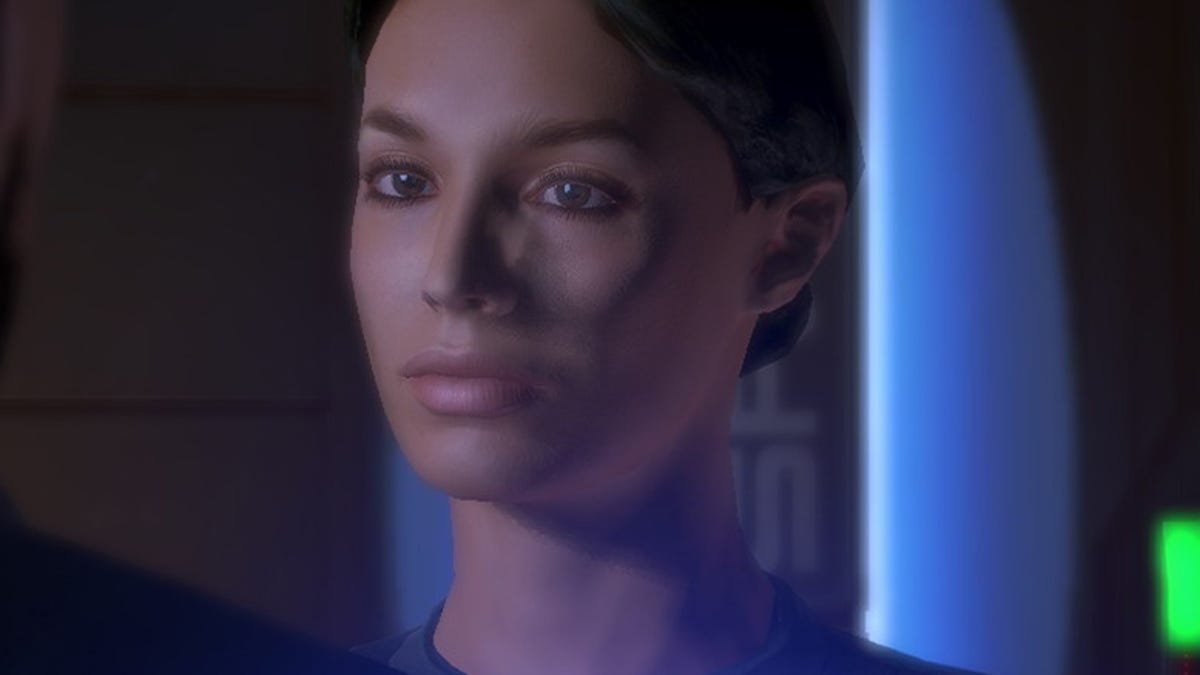Maturity, Madness, and 'Mass Effect'
A look at some of the strange and downright fictional portrayals of Mass Effect in the media.

Where are these people getting their copies of
This picked up steam a week ago, when McCullough claimed in a Townhall.com column that Mass Effect offered "customizable sodomy." I'm not quite sure what "customizable sodomy" is, and can only speculate that it involves the option of spinning rims, a spoiler, and an extended warranty.
To his credit, McCullough apologized for the utterly incorrect observations he made about the game. Many, many gamers sent him feedback about the column and how wrong he was about the game, and McCullough admitted that he was "misinformed on at least two points of substance in [his] original column." (The original column has been pulled from Townhall.com.)
Now FOX News has picked up the Mass Effect ball and run headfirst into traffic with it. Yesterday, Joystiq posted this interesting clip, hosted on GameTrailers. According to Martha MacCallum of FOX News' Live Desk, Mass Effect includes "full digital nudity," and "the ability for the players to engage in graphic sex."
I've played through Mass Effect twice (once as a Paragon-themed Infiltrator, and once as a Renegade-themed Soldier), and I've seen absolutely nothing of the sort. Yes, the game has sexual content, but it's the sort of sexual content you'd see left in a movie on basic cable. Through the entire game, you get exactly two chances to engage in sex, once near the beginning for assisting an NPC with a social problem, and once near the end as the culmination of the game's romantic subplot. In both cases, the "sex scenes" last for less than a minute, and contain all the explicit content of a PG-13 movie. There is no frontal nudity and absolutely no interaction during the activity itself. In fact, in the background during MacCallum's piece on FOX News, the first sexual interlude is played in its entirety.
I wouldn't recommend Mass Effect for children, but not because of its scant sexual content. It's not a good game for kids because of mature themes of violence, genocide, and backstabbing politics. It's rated M for mature for a reason: because it's meant for adults to play.
Children are no longer the biggest consumers of video games. According to the Entertainment Software Association, 71.8 percent of gamers are 18 or older, and the average age for gamers is 33 years old. When a video game is rated M, it's not rated so with a wink and a nudge. M-rated games are for adult gamers who make up the majority of the gaming population. The kids who played Nintendo and Sonic 15 years ago are still gaming, and they're now 15 years older. Video games are not being marketed to children simply because they're video games. M-rated video games are no different than R-rated movies. They're intended for adults who want to enjoy mature content, whether that content is violence, sex, or dialog with swearing and big words. They are not meant for children.
Many of these misinformed antigamers claim that mature video games can be played by children easily, and that parental controls are useless. A few years ago that argument might have had merit, but not anymore. Even technologically illiterate parents can easily set parental controls on their kids' Xbox: just turn the Xbox on, hit right a few times, and go into the "Family Settings" menu. From there you can set the Xbox to only play games rated T (for Teen) or lower. Once you set that, you can then set a passcode (one that hopefully your kids won't be able to guess) to make sure your kids can't change it. Unless they're console-hacking wunderkind, they won't mystically crack your code with their preternatural electronics abilities. It's as simple as that. Every major video game console has such a setting, and it's incredibly easy to just click it on. If you want to play an M-rated game, just enter your code and play.
It's 2008, a good two decades after the NES made video games popular across the country. Media outlets should make at least a token effort toward researching how video games have changed in that time, and they should seriously look at a games like Mass Effect and systems like the Xbox 360 before they make wild allegations about prurient content and lax parental controls. Times have changed.